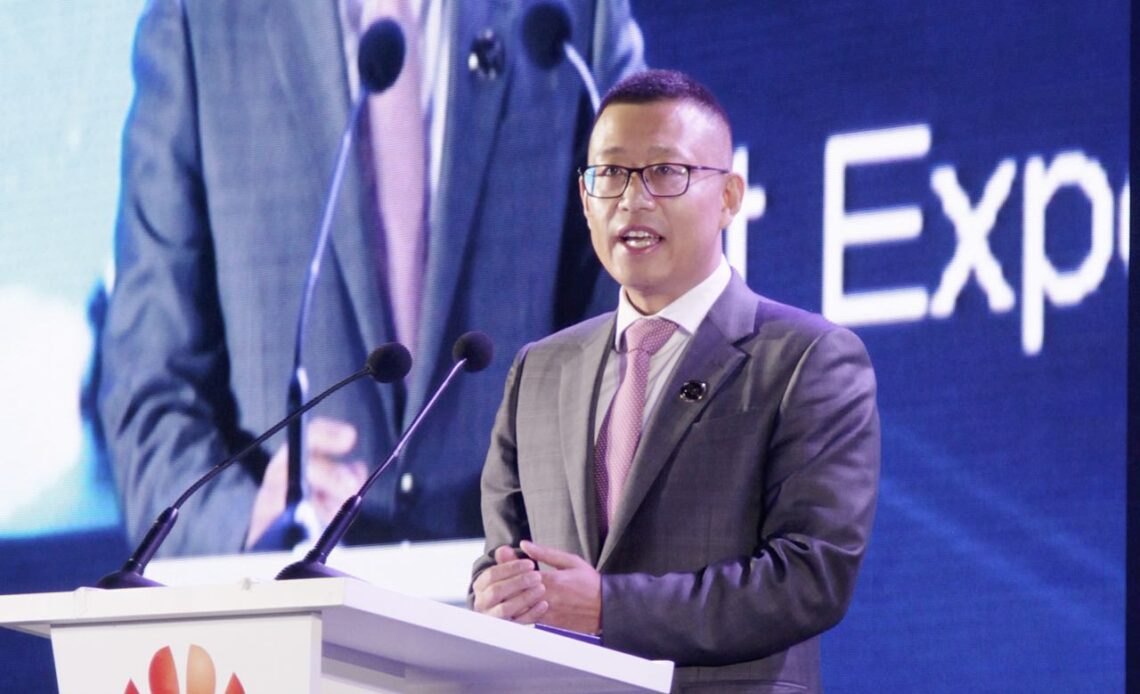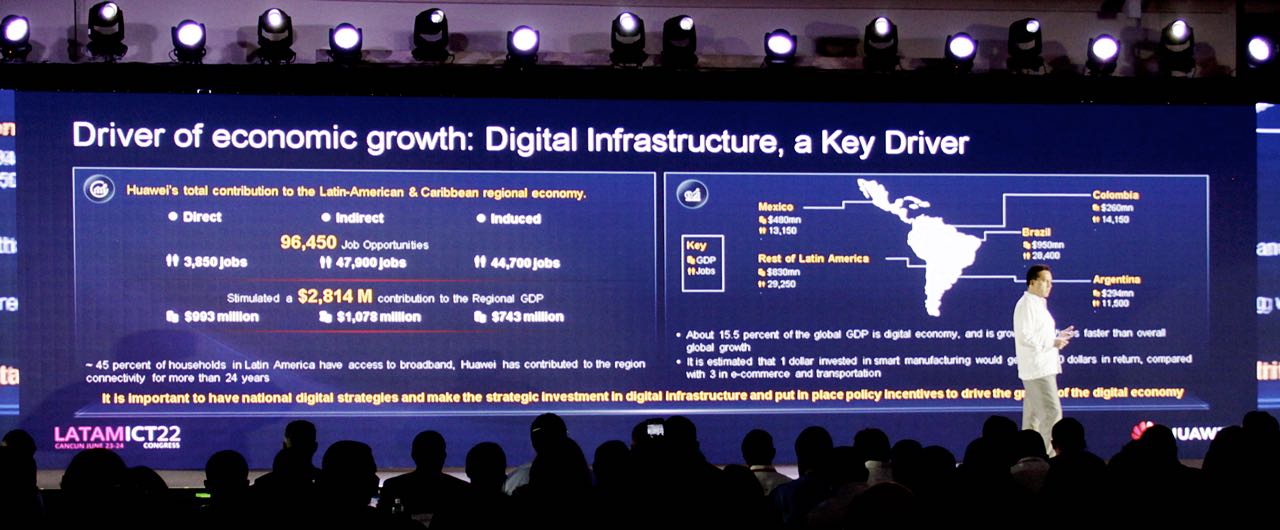
Above: Micheal Xue, Vice President, Huawei Latin America and the Caribbean. Photos by Gabriel Gonzalez Torres, courtesy Huawei.
Digital technologies could play a key role in facilitating the recovery in the aftermath of the COVID-19 pandemic, experts said at a regional industry summit in Cancun, Mexico, held from June 23 – 24, and organized by Huawei with the support of International Telecommunications Union (ITU) and GSMA Intelligence.
“The COVID pandemic has had a lot of impacts on the lives of nearly all the people in the region. On the one hand, it has disrupted our lives and led to unfortunate losses and deepened the challenges such as income disparity and thereby the digital divide,” said Cesar Funes, Vice President of Public Affairs at Huawei Latin America and the Caribbean.
“At the same time, it has made it more important for people to stay connected during the pandemic. Home office has been more common and may even become partially permanent,” he added.
Connectivity
Industry veterans including those from ITU and GSMA said that it was necessary to invest in digital technologies and strengthen the digital infrastructure in order to speed up the recovery.
“Around 93% of the population is covered by a mobile broadband network, reflecting operators’ investments over the last decade. However, approximately 38% of the population covered but not yet using mobile internet face barriers other than coverage,” said Lucas Gallitto, Head of GSMA Latin America. “This usage gap reveals the importance of working on comprehensive public policies for digital inclusion, especially in the wake of the unprecedented demand for connectivity resulting from the pandemic.”
“It is even more necessary for us to use digital technologies and invest in bridging the digital divide as they become more and more essential to our lives, so that going forward we can have a faster recovery in our life and economy and more sustainable development,” said Funes.
Experts at the event observed that during the COVID-19 pandemic, internet connectivity had become an integral part of everyone’s daily lives and e-commerce had grown dramatically in the region. In Colombia and Mexico, business presence increased with websites growing 800%, and 360% in Brazil and Chile. The platforms, the experts said, have been key to the rapid growth of e-commerce.
“These new platforms will be more developed in this region and they will be the basis of a potential explosion of the new digital economy with the arrival of 5G, the expansion of Fiber optic networks, the Cloud, Edge Computing, IoT, Robotics, advanced Video, and its Artificial Intelligence as the main driver,” said Marcelo Motta, an executive at Huawei Brazil.
It is estimated that a 20 percent increase in ICT investment will generate an additional economic growth of 1 percentage point, an expert said at the event.

“Key 5G capabilities, including higher speeds and ultra-low latency, can enable innovative solutions for enterprises seeking ways to boost productivity post-pandemic. These productivity gains will increase the positive impact mobile technologies and services already have on the region’s economy,” said Lucas.
Digital Growth Drivers
Also speaking at the event, Fernando Liu, head of Huawei Cloud for Latin America and the Caribbean, said that he believed that the future growth in Latin America and the Caribbean Region will be driven by fintech, education, e-commerce, and entertainment.
“Education is the bedrock of society and it cultivates talents in various vertical industries; Second, e-commerce and entertainment are the two main drivers of economic growth in Latin America and the Caribbean. Many new lifestyles, such as online shopping and gaming are becoming more and more popular. Virtual business is now a majority of consumption. Finally, fintech is the engine of all of these industries. Fintech makes payments easier for everyone and makes business easier for every company,” he said.
“Obviously the digital sector growth has gained momentum in Latin America and the Caribbean and we do expect to see explosive growth in some of these new businesses such as e-commerce, given the size of the economy and the population in Latin America and the Caribbean,” he said.
The industry speakers said that it was important to invest in digital infrastructure and define good and suitable national digital strategies in order to achieve this growth in the region.
They noted that entrepreneurship in Latin America and the Caribbean has been growing rapidly with more and more startup companies and the development of some clusters to produce a better business ecosystem. People in different industries, the experts said, started to realize that they could potentially increase productivity by adopting new digital solutions. The policymakers, they noted, are seeing the importance of this and moving faster, too.
It calls for efforts to drive the deployment of both wireless and optical fiber networks in order to drive the development of the robust digital sector, the experts all agreed at the conference.
“We would like to suggest that national authorities make or update their national digital strategies to catch the opportunities,” said Cesar. “At the same time, we should be careful to address some of the challenges that have increased due to the COVID pandemic, like the widened digital divide that often comes along with the increase in poverty rate. For this, we need to involve all the partners and stakeholders to address these challenges together.”
“We are here for the long term and we look at the long term, so we are very willing to contribute and help in this process where we can, especially with our technologies, both in business means and also as part of our social programs,” he added.
The ITU also called for efforts to increase the connectivity in the region.
“ITU is inviting all players in the digital ecosystem to be part of a great alliance for connectivity. Partner2Connect is the great coalition that the organization is promoting so that before 2030 all citizens of the world are connected to broadband. To date, more than 368 pledges have been declared by Member States from around the world, companies, associations, and this ICT Latam 2022 not only allows us to develop ITEC 2022 but also to continue promoting actions to connect all the unconnected,” said Carlos Lugo, ITU Development and Innovation Official for Americas.

